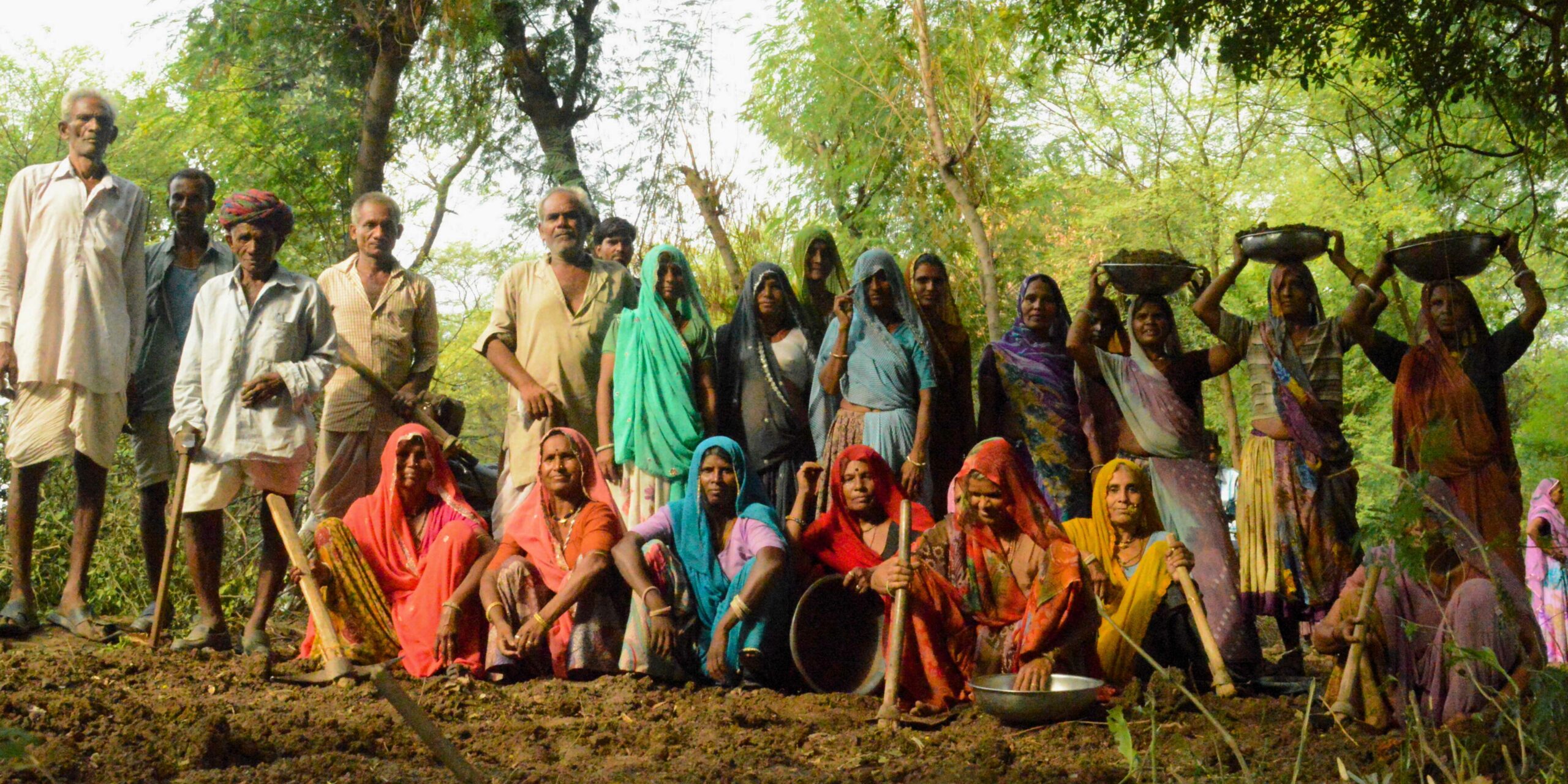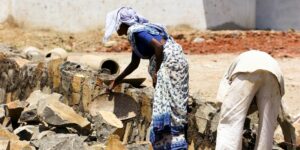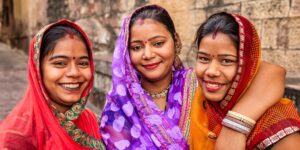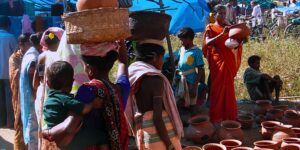
NCAER National Data Innovation Centre
Measurement Brief | 2024-01
Welcome to the fourth issue of GenderTalk from the NCAER-National Data Innovation Centre’s Gender Hub. In this issue of GenderTalk, we focus on the gender implications of internal migration in India. The drivers of women’s migration are complex and can include economic and educational opportunities, cultural practices surrounding family structure and marriage, desire for exploration of new built and social environments, a combination of these reasons, and many more.
GenderTalk is a space where scholars, policymakers, and civil society members can engage with each other on a theme vital to women’s well-being in India. For previous issues, scroll to the bottom.
In particular, this brief discusses the following:
 1. Women’s internal migration in India: Data gaps and needs – In the introductory article, Reshma Roshania (NCAER) demonstrates how gaps in data on internal migration disproportionately invisibilize women migrants, especially circular migrants in rural destination spaces….more
1. Women’s internal migration in India: Data gaps and needs – In the introductory article, Reshma Roshania (NCAER) demonstrates how gaps in data on internal migration disproportionately invisibilize women migrants, especially circular migrants in rural destination spaces….more
 2. Women’s labour migration: Systems, practices and agency – Neetha N. (Centre for Women’s Development Studies) highlights the gendered structure of labour migration, from the nature of work, to recruitment practices, to payment systems….more
2. Women’s labour migration: Systems, practices and agency – Neetha N. (Centre for Women’s Development Studies) highlights the gendered structure of labour migration, from the nature of work, to recruitment practices, to payment systems….more
 3. Female migrants from North-East India in Delhi’s service industry – Drawing on primary data, Priyakshi Baruah (Jamia Millia Islamia) unpacks growing female migration from North-Eastern states to Delhi, finding that exoticism drives service industry recruitment, while discrimination stifles work opportunities in other sectors..…more
3. Female migrants from North-East India in Delhi’s service industry – Drawing on primary data, Priyakshi Baruah (Jamia Millia Islamia) unpacks growing female migration from North-Eastern states to Delhi, finding that exoticism drives service industry recruitment, while discrimination stifles work opportunities in other sectors..…more
 4. Intermittent migration: Female agency within marriage and beyond – Employing oral history research methods, Priti Ramamurthy (University of Washington) finds that women intermittently migrate as a strategy to escape poor treatment in their marital households, and to pursue social relationships…..more
4. Intermittent migration: Female agency within marriage and beyond – Employing oral history research methods, Priti Ramamurthy (University of Washington) finds that women intermittently migrate as a strategy to escape poor treatment in their marital households, and to pursue social relationships…..more
 5. Role of Marriage Migration in Determining Women’s Autonomy in the Indian Context Using IHDS 2011-12 data, Esha Chatterjee (IIT Kanpur) explores the nuances of marriage migration, finding that women’s autonomy after marriage varies by kinship patterns and physical communities….more
5. Role of Marriage Migration in Determining Women’s Autonomy in the Indian Context Using IHDS 2011-12 data, Esha Chatterjee (IIT Kanpur) explores the nuances of marriage migration, finding that women’s autonomy after marriage varies by kinship patterns and physical communities….more
 6. Conversation with Manju Rajput The Conversation with Manju Rajput showcases Aajeevika Bureau’s work mobilizing women with migrant husbands who remain in source villages, migrant women, and adolescent girls to access their entitlements and exercise their voice…more
6. Conversation with Manju Rajput The Conversation with Manju Rajput showcases Aajeevika Bureau’s work mobilizing women with migrant husbands who remain in source villages, migrant women, and adolescent girls to access their entitlements and exercise their voice…more
READS…from around the web
Bhagat, R. B. (2017). Migration, gender and right to the city: the Indian context. Economic and Political Weekly, 35-40.
https://www.epw.in/journal/2017/32/perspectives/migration-gender-and-right-city.html
Desai, S., & Banerji, M. (2008). Negotiated identities: Male migration and left-behind wives in India. Journal of Population Research,25, 337-355. https://link.springer.com/article/10.1007/BF03033894
Mazumdar, I., Neetha, N., & Agnihotri, I. (2013). Migration and gender in India. Economic and Political Weekly, 54-64.https://www.epw.in/journal/2013/10/special-articles/migration-and-gender-india.html
Shah, A. (2006). The labour of love: Seasonal migration from Jharkhand to the brick kilns of other states in India. Contributions to Indian Sociology, 40(1), 91-z18. https://journals.sagepub.com/doi/10.1177/006996670504000104
Singh, C. (2019). Migration as a driver of changing household structures: Implications for local livelihoods and adaptation.Migration and Development, 8(3), 301-319. https://www.tandfonline.com/doi/full/10.1080/21632324.2019.1589073
Wadhawan, N. (2013). Living in domesti-city: Women andmigration for domestic work from Jharkhand. Economic andPolitical Weekly, 47-54. https://www.epw.in/journal/2013/43/review-womens-studies-review-issues/living-domesti-city.html
Click here to download the current measurement brief
This measurement brief is part of the Gender Hub led by Dr. Pallavi Choudhuri and Dr. Sonalde Desai. The Gender Hub initiative is a part of the National Data Innovation Centre at the National Council of Applied Economic Research. GenderTalk, is a space where scholars, policymakers, and civil society members can engage with each other on a theme vital to women’s well-being in India. Our website can be found at https://ndic.ncaer.org/research-theme/gender-data-hub/.
Previous Issues of GenderTalk:
2023-03: Women’s Agency in Marriage Choice;